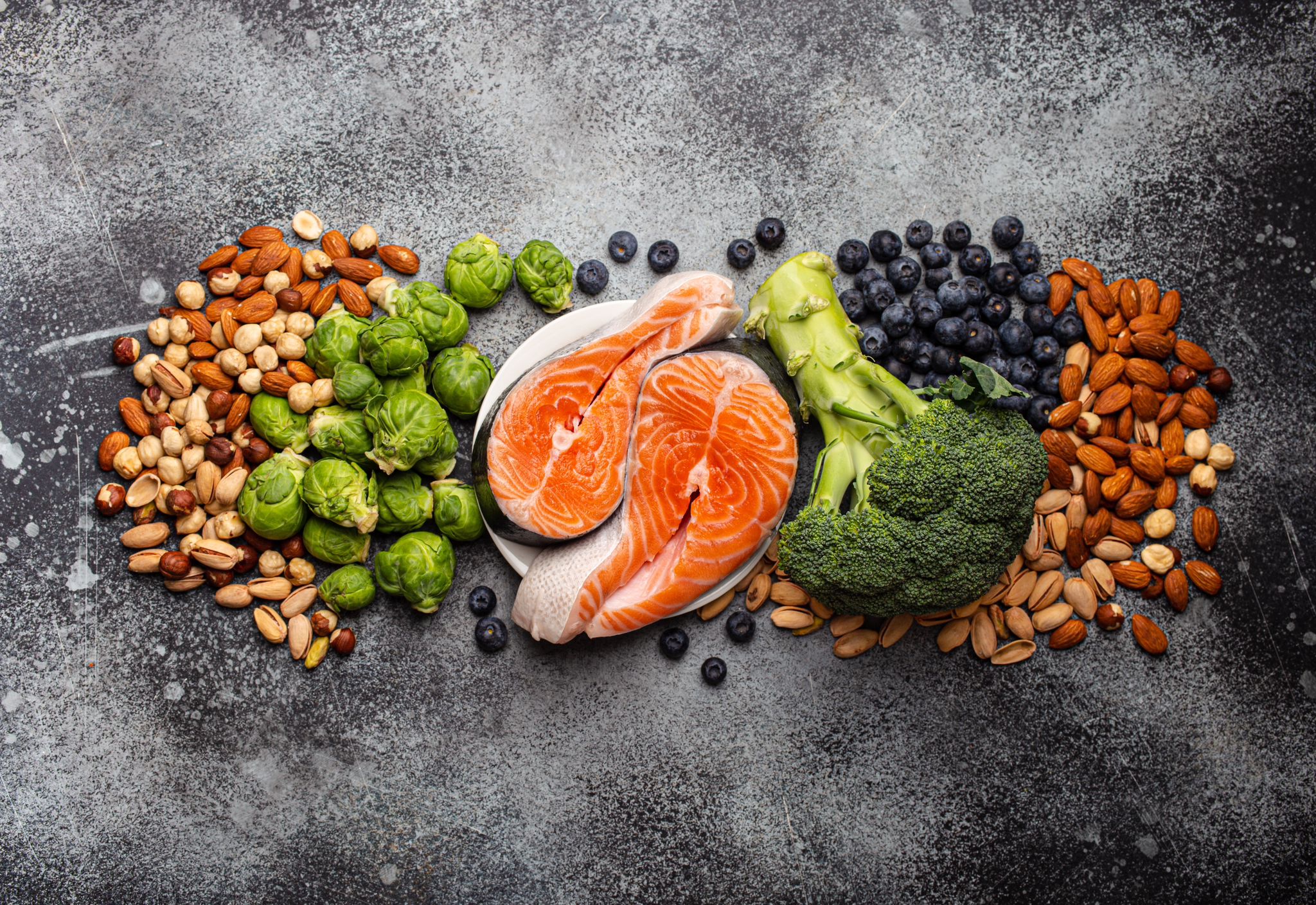Eat Your Way to Zen: Stress-Relieving Foods, Supplements, and Spices
Introduction
In today’s contemporary, rapid-paced society, stress has seamlessly woven itself into the fabric of our daily existence. While completely eradicating stress may seem like an elusive goal, there are actionable steps we can take to effectively manage its effects. Incorporating specific foods, supplements, and spices into our diet holds the promise of significant support in this endeavor. In this blog post, we embark on a journey into the realm of stress relief, exploring a curated selection of foods, supplements, and spices celebrated for their potent stress-alleviating properties. Furthermore, we’ll provide you with a sample daily menu meticulously crafted to seamlessly integrate these stress-busting elements into your meals, fostering a sense of tranquility and balance in your everyday life.
Foods, Supplements, and Spices for Stress Relief:
Complex Carbohydrates:
Foods like whole grains, oats, and brown rice are rich in complex carbohydrates, which can help increase serotonin levels in the brain, promoting feelings of relaxation and well-being.
Leafy Greens:
Spinach, kale, and other leafy greens are packed with magnesium, a mineral known for its stress-relieving properties. Magnesium helps regulate cortisol levels and promotes relaxation of the muscles and nerves.
Fatty Fish:
Salmon, mackerel, and trout are excellent sources of omega-3 fatty acids, which have been shown to reduce levels of cortisol and adrenaline, two hormones associated with stress.
Nuts and Seeds:
Almonds, walnuts, flaxseeds, and chia seeds are rich in healthy fats, fiber, and antioxidants. They can help stabilize blood sugar levels and reduce inflammation, both of which play a role in stress management.
Probiotic-Rich Foods:
Fermented foods like yogurt, kefir, and kimchi contain beneficial bacteria that support gut health. Research has shown that a healthy gut microbiome can help reduce symptoms of anxiety and depression.
Herbal Teas:
Chamomile, lavender, and peppermint teas are known for their calming effects on the mind and body. Sipping on a warm cup of herbal tea can help promote relaxation and reduce stress levelAdaptogens like ashwagandha, rhodiola, and holy basil have been used for centuries in traditional medicine to help the body adapt to stress. These herbs can help balance cortisol levels and improve resilience to stress.
Supplements:
In addition to incorporating stress-relieving foods, certain supplements can also support your body’s response to stress. Vitamin B complex, vitamin D, magnesium, and omega-3 fatty acids are commonly recommended for their stress-reducing benefits.
Spices:
Saffron, known for its distinct flavor and vibrant color, has also been found to have mood-boosting properties. Research suggests that saffron may help alleviate symptoms of depression and anxiety, making it a valuable addition to your stress-relief arsenal.
Sample Daily Menu for Stress Relief:
Breakfast:
Overnight oats made with rolled oats, almond milk, chia seeds, and topped with sliced bananas and a drizzle of honey.
Mid-Morning Snack:
Greek yogurt topped with mixed berries and a sprinkle of flaxseeds.
Lunch:
Quinoa salad with spinach, cherry tomatoes, cucumber, avocado, and grilled salmon.
Afternoon Snack:
Carrot sticks with hummus.
Dinner:
Baked chicken breast with steamed broccoli and brown rice, seasoned with a pinch of saffron.
Evening Snack:
Chamomile tea with a handful of almonds.
Conclusion:
Incorporating stress-relieving foods, supplements, and spices into your daily diet can be a transformative step towards better managing the demands of modern life. By embracing a holistic approach to nutrition that includes complex carbohydrates, leafy greens, fatty fish, nuts, seeds, probiotic-rich foods, herbal teas, adaptogenic herbs, and spices like saffron, you’re providing your body with the essential nutrients, compounds, and flavors it needs to combat stress effectively.
Furthermore, the sample daily menu provided offers a practical blueprint for integrating these stress-busting options into your meals seamlessly. By making conscious choices to prioritize your mental and emotional well-being through nutrition, you’re taking proactive steps towards fostering a calmer, more balanced lifestyle.
Remember, managing stress is a holistic endeavor, and while dietary changes can play a significant role, it’s essential to complement these efforts with other stress-reduction techniques such as exercise, mindfulness practices, and adequate sleep.
Ultimately, by prioritizing self-care and nourishing your body with the right foods, supplements, and spices, you can empower yourself to navigate life’s challenges with resilience and grace, promoting long-term health and well-being.





